#Jessica Blackmore
Explore tagged Tumblr posts
Text

Bad movie I have Five Nights at Freddy's 2023
#Five Nights at Freddy's#Josh Hutcherson#Piper Rubio#Elizabeth Lail#Matthew Lillard#Mary Stuart Masterson#Kat Conner Sterling#David Lind#Christian Stokes#Joseph Poliquin#Grant Feely#Asher Colton Spence#David Huston Doty#Liam Hendrix#Jophielle Love#Tadasay Young#Michael P. Sullivan#Wyatt Parker#Lucas Grant#Jessica Blackmore#Garrett Hines#Ryan Reinike#Theodus Crane#Julia Belanova#Lisa Mackel Smith#Xander Mateo#Matthew Patrick#Bailey Winston#Gralen Bryant Banks#Cory Williams
3 notes
·
View notes
Text
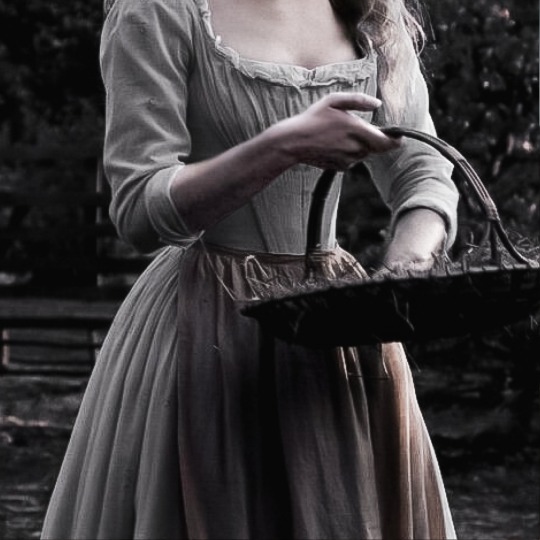
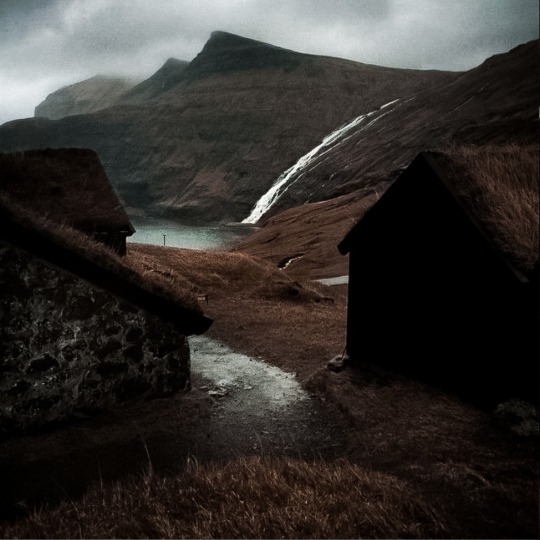
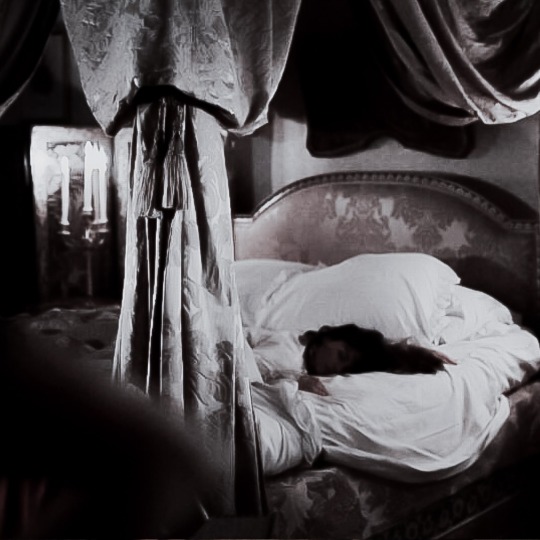
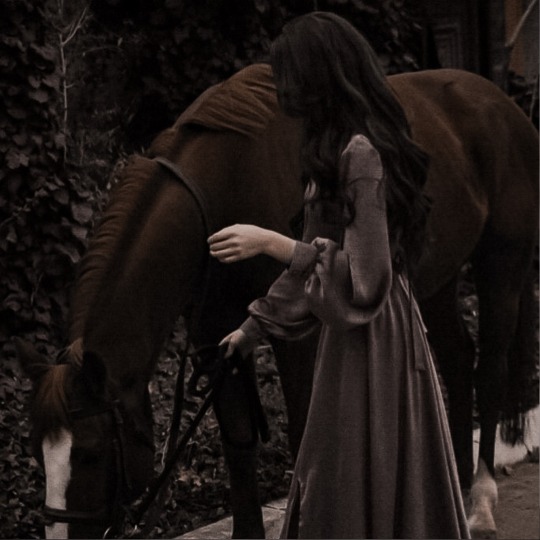
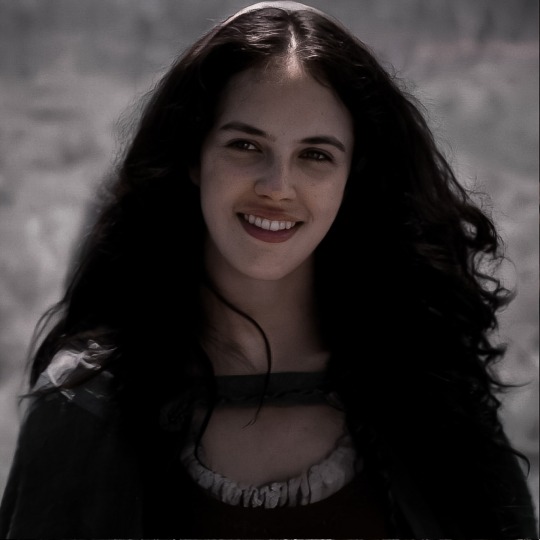
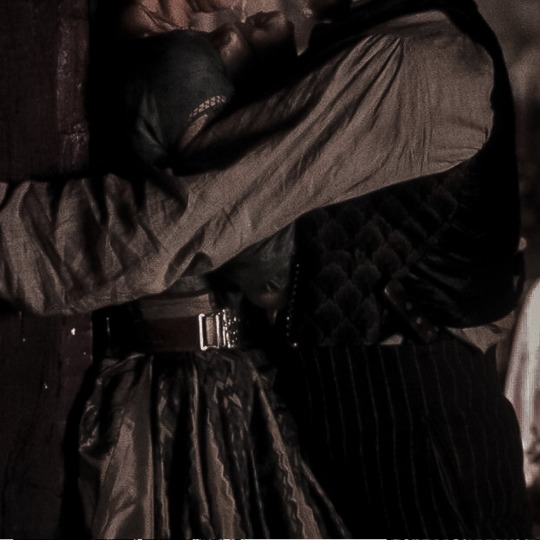
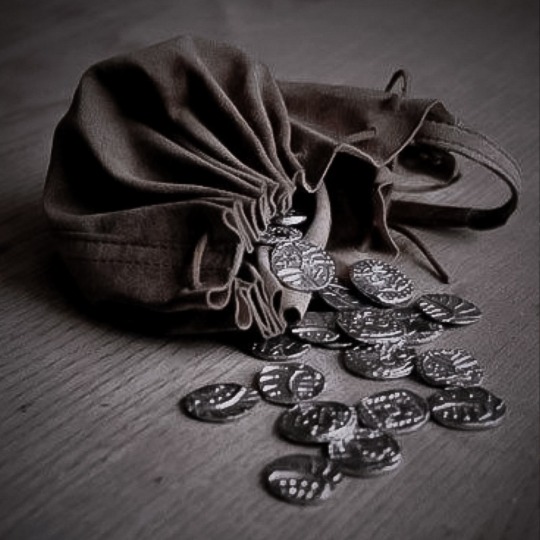
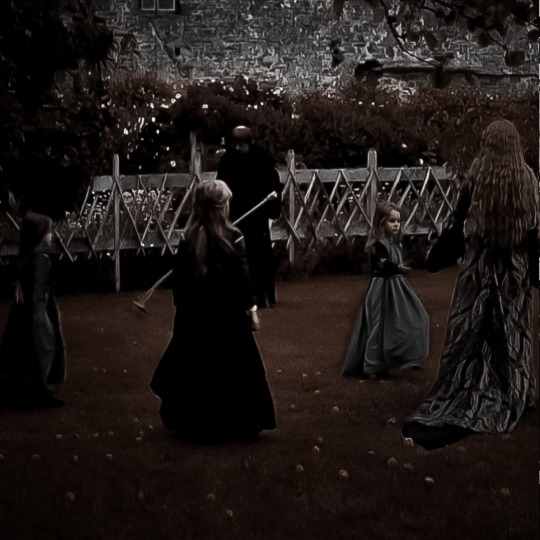
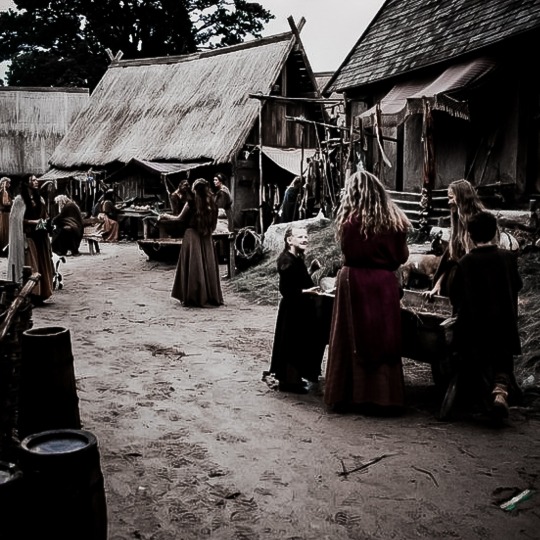
MEGETT
ㅤㅤㅤʜᴀᴅ ᴍʏ ʜᴇᴀʀᴛ ᴏɴ ᴀ sɪʟᴠᴇʀ ᴄʜᴀɪɴ ㅤㅤㅤᴡɪᴛʜ ᴛʜᴇ ᴡᴏʀᴅs ᴇɴɢʀᴀᴠᴇᴅ ㅤㅤㅤ"ɪ ʟᴏᴠᴇᴅ ʏᴏᴜ"... ㅤㅤㅤʟɪᴋᴇ ᴀ sᴡᴀɴ ᴛʜᴀᴛ ᴡᴀs ʟᴏsᴛ ᴀᴛ sᴇᴀ ㅤㅤㅤɪ ʟᴏsᴛ ᴀʟʟ ᴏғ ᴍᴇ ㅤㅤㅤᴛᴏ ʏᴏᴜ...
WRITING ON THE WALL - BLACKMORE'S NIGHT
Mistresses of Aegon IV Targaryen [2/9]
#megett#aegon iv targaryen#a song of ice and fire#a world of ice and fire#pre asoiaf#asoiaf#mistresses of aegon iv targaryen#hotd#>mistresses of aegon iv targaryen#faceclaim: Jessica Brown Findlay#blackmore's night#writing on the wall#asoiafwomensource#preasoiafsource
8 notes
·
View notes
Text
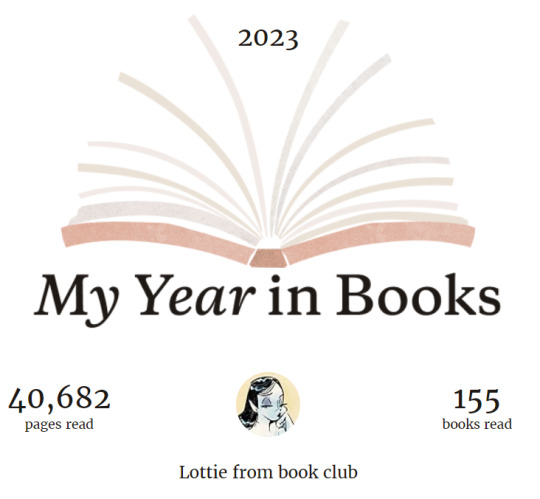
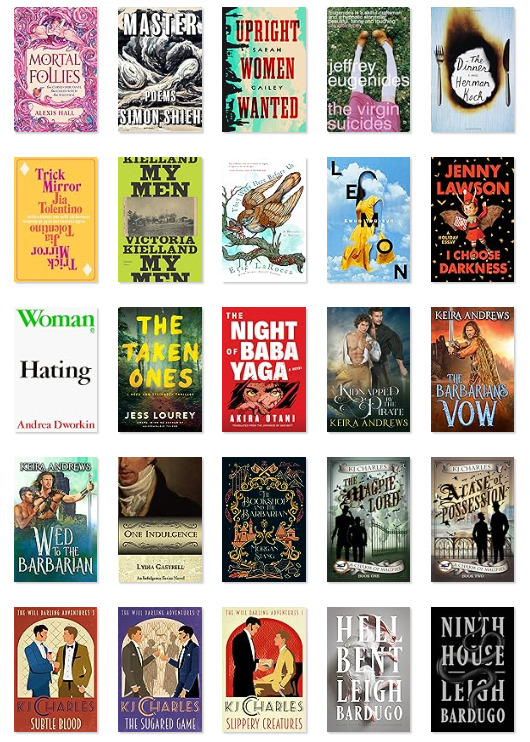

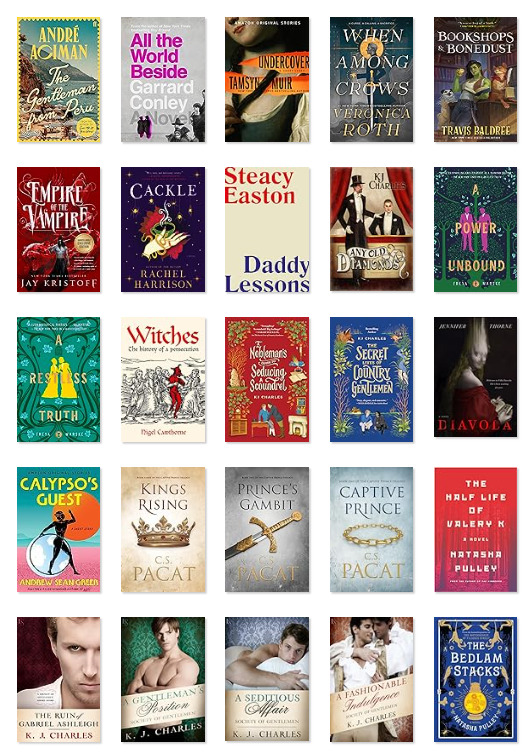




I'm officially calling it! I'm in Ireland of the rest of the year at a family wedding which will NOT be a peaceful reading environment, so:
Things This Infographic Does Not Include: pretty much all of the ‘info’ in ‘infographic’ because it’s ugly as hell this year (again)
my TOP 15* IN 2023 are:
Mortal Follies by Alexis Hall
The Night of Baba Yaga by Okira Otani
Dark Heir by C S Pacat
The Five: The Untold Lives of the Women Killed by Jack the Ripper by Hallie Rubenhold
The Woods All Black by Lee Mandelo
All the World Beside by Garrard Conley
When Among Crows by Veronica Roth
I Who Have Never Known Men by Jacqueline Harpman
Penance by Eliza Clark
The Intoxicating Mr Lavelle by Neil Blackmore
The Vampire Lestat by Anne Rice
Bright Young Women by Jessica Knoll
What Moves the Dead by T. Kingfisher
Girls That Invest by Simran Kaur
No One is Talking About This by Patricia Lockwood
*in the order I read them in from most to least recent because cba
there were a lot of rereads this year. I'm not listing them because mortifyingly there are MANY that I would have to list TWICE.
follow me on Goodreads + get yours here!
95 notes
·
View notes
Text
The descriptions of the characters in the Extended Cut of the Scream franchise Part 5

Hello everybody, if you have seen part 4 of the characters in the Extended Cut of the Scream franchise, here's part 5 of the characters in the Scream franchise because I have done the characters of the friend groups of The Fab Twelve & The Friendly Posse & the Supporting Characters but here's the new characters of the Scream franchise.
New Characters: Part 1
Joe Kerry as Johnny Landry, an Smart, & Intelligent young man who's been on a roll in his career because he's an gaming geek & an FBI Agent, he's the love interest of his best friend Jessie Crane, one of the gaming buddies with Terry & Larry Watkins & Nicholas "Nick" Rodriguez & the big brother of Ethan Landry. He's also the partner of Kirby Reed when they investigate the ghostface attacks.

Logan Lerman as Quentin Bailey, an Tough, Loyal, & Extremely Confident young man who's been born & raised in New York because he's the protective big brother of Quinn Bailey & the elder son of Detective Wayne Bailey & he's being buddies with Derek Shepherd & he's not a fan of horror movies but he loves action movies.

Judah Lewis as Derek Shepherd, an Protective, Supportive, Independent, & Intelligent young man who's been one of the students at Blackmore University in New York & joins the friend groups of The Fab Twelve & The Core Four because he's being buddies with Quentin Bailey & he's the boyfriend of Lillian "Lilly" Davis. He's also watching the Evil Dead movies starting with Bruce Campbell.

Brec Bassinger as Lillian "Lilly" Davis, an Beautiful, Funny, Charismatic, Kind, & Supportive young woman who's being one of the students at Blackmore University in New York & she's an Photographer because she's the girlfriend of Derek Shepherd, the niece of Riley Davis, & she's being frenemies with Carrie Tatum Riley-Weathers.
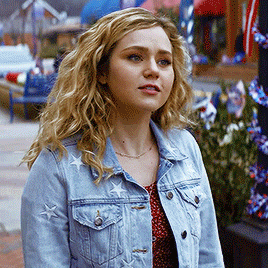
Michael Rainey Jr. as Anthony "Anton" Mercer, an Loyal, Calm, & Focused young man who's been living in a apartment behind Danny & Danielle Brackett & he's living with Grace-Lynn "Gracie" Moore & Elena Connors & he's also working in law enforcement because he's the brother-in-law of Terry & Larry Watkins & he's being partners with Riley Davis & Johnny Landry.

Jessica Stroup as Riley Davis, an Tough, Resourceful, & Resilient woman who's being the older niece of Lillian "Lilly" Davis & she's an FBI Agent.

Peyton Elizabeth Lee as Susie Kayoko, an Kind, Friendly, Loving & Beautiful young woman who's being friends with The Core Four & The Fab Twelve & one of the students at Blackmore University in New York because she's the younger half-sister of Hannah Kayoko.

Havana Rose Liu as Hannah Kayoko, an Beautiful, Tough, Caring, & Smart young woman who's being friends with The Fab Twelve & The Core Four in the Extended Cut of Scream VI & one of the students at Blackmore University because she's the older half-sister of Susie Kayoko by proxy they're both half-sisters of Anika Kayoko. Her favorite movie is Hello Mary Lou: Prom Night II.

Paige Hurd as Hayley McDaniel, an Tough, Gorgeous, & Badass young woman who's been one of the students at Blackmore University in New York because she's the older sister of Holly McDaniel.

More descriptions of the characters in the Extended Cut of the Scream franchise are coming soon.
Stay Tuned!
#scream original character#scream 2022#scream franchise#scream vi#joe kerry#logan lerman#judah lewis#brec bassinger#michael rainey jr#jessica stroup#peyton elizabeth lee#havana rose liu#paige hurd#scream fandom#scream fanfic#fictional characters#Spotify
4 notes
·
View notes
Photo

Let’s take a minute to appreciate writers, shall we? After all, the power of the pen (or typewriter, or computer) is vast. For centuries, writers have recorded history, woven tales that captivate generations, and put feelings to paper that most people can’t articulate. But their contributions go beyond these things — they’ve come up with some beautiful names, too! In coming up with the perfect names to call their characters, they have ended up inventing some names that have actually become staples in our society! (Jessica, anyone?!) Most of the names we know and love originate with people, places, things, or qualities. Amelia, for example, means “brave” or “vigorous.” Noah is a name from the Bible. Thomas means “twin” — a circumstance. Ashley means “ash tree clearing” — a place. Mason is an occupational name. But the names we’ve cultivated for this list are unique to literature, invented for the characters who carried them and made popular by the stories they’re in. We’ve put together some of the most beautiful girl names that wouldn’t exist if it weren’t for the brilliant minds of the authors who invented them. And we think a lot of them will surprise you! Jessica Image Credit: SheKnows We have William Shakespeare to thank for this super-popular pick! He first used this name in its current form in The Merchant of Venice (1596). Sources agree that he likely derived it from the biblical name Iscah (meaning “to behold”), which was spelled Jescha in his era. The name remained uncommon as a given name until the mid-20th century, when it peaked in popularity in the U.S., ranking as the most popular girls’ name from 1985 to 1995 — except in 1991 and 1992, when Ashley briefly snagged the top spot. Arwen Image Credit: SheKnows Meaning “noble maiden” in the fictional language Sindarin, the name Arwen was invented for Lord of the Rings (1954) by J.R.R. Tolkien. In the book, Arwen is the daughter of Elrond and the beloved of Aragorn. Coraline Image Credit: SheKnows French composer Adolphe Adam introduced this name in 1849 for a central character in his opera Le Toréador, probably drawing inspiration from the French name Coralie (meaning “coral”). Over a century later, author Neil Gaiman used it for the protagonist of his 2002 novel Coraline — a choice that he says originated from an accidental misspelling of Caroline, which he ultimately embraced. Vanessa Image Credit: SheKnows Jonathan Swift coined this name for his 1726 poem Cadenus and Vanessa by creatively reordering the syllables of his close friend Esther Vanhomrigh’s first and last names. Genius! Fiona Image Credit: SheKnows Scottish poet James Macpherson appears to have introduced this name in his 1761 poem Fingal, where it was originally spelled Fióna. It is said to be the female version of the Irish name Fionn, meaning “white” or “blessed.” Amoret Image Credit: SheKnows Edmund Spenser featured this name in his 1590 poem The Faerie Queene, assigning it to a character who serves as a figure of married love and chastity. The name Amoret is reportedly a combination of the Italian word for “love” — amore — with the diminutive “et” or “ette” suffix. Lorna Image Credit: SheKnows R. D. Blackmore introduced this name in his 1869 novel Lorna Doone, where it belongs to the title character in a tale of forbidden love set in southern England. It’s long been thought that Blackmore drew inspiration from the Scottish place name Lorne, or the noble title Marquis of Lorne. Eowyn Image Credit: SheKnows Like Arwen, Eowyn (or Éowyn — both pronounced AY-oh-win) was created by author J.R.R. Tolkien. Derived from Old English, this name means “horse joy.” Tolkien created it as part of the Rohirric language in The Lord of the Rings (1954), where Éowyn is the courageous niece of King Théoden of Rohan. Veruca Image Credit: SheKnows Roald Dahl coined this name for a character in Charlie and the Chocolate Factory (1964), playfully drawing from the Italian and Latin word verruca … which refers to a wart. Add this one to the list of beautiful names with less-than-desirable meanings! Miranda Image Credit: SheKnows This name originates from the Latin mirandus, meaning “admirable” or “worthy of admiration.” Shakespeare introduced it in The Tempest (1611) for his heroine Miranda, who, along with her father Prospero, is stranded on an island. But despite its early literary roots, the name remained uncommon in English until the 20th century. Evangeline Derived from the Greek eu, meaning “good,” and angelma, meaning “news” or “message,” this name signifies “good news.” Henry Wadsworth Longfellow is credited with its earliest known use in his 1847 epic poem Evangeline. It later appeared in Harriet Beecher Stowe’s Uncle Tom’s Cabin (1852) as the full name of the character Eva. Clea Image Credit: SheKnows Clea (also spelled Cléa) is a Latinate variation of Cleo (meaning “glory”), and was seemingly invented by British novelist Lawrence Durrell for a character in The Alexandria Quartet. Medora Image Credit: SheKnows Lord Byron introduced this name in his 1814 poem The Corsair, though its origins remain a mystery. Intriguingly, the same year, it appeared as the middle name of Elizabeth Medora Leigh (1814–1849), who was both his niece and — according to whispers of the time — possibly his daughter. Scandalous! Claribel Image Credit: SheKnows Edmund Spenser featured this name as Claribell in The Faerie Queene (1590), while Shakespeare later used it in The Tempest (1611). Alfred Tennyson further immortalized it with his 1830 poem, Claribel. It’s said to come from the name Clara (meaning “bright”) combined with the -bel suffix, which comes from the Latin bella (meaning “beautiful”). Pamela Image Credit: SheKnows Pamela is another name whose literary origins surprised us! Coined by poet Philip Sidney in the late 16th century for his romance Arcadia (1593), this name may have been crafted to mean “all sweetness,” combining the Greek pan (“all”) and meli (“honey”). Samuel Richardson later gave it prominence as the heroine’s name in Pamela, or Virtue Rewarded (1740). Though it gained literary recognition early on, it wasn’t widely used as a given name until the 20th century. Pin It! Source link
0 notes
Photo

Let’s take a minute to appreciate writers, shall we? After all, the power of the pen (or typewriter, or computer) is vast. For centuries, writers have recorded history, woven tales that captivate generations, and put feelings to paper that most people can’t articulate. But their contributions go beyond these things — they’ve come up with some beautiful names, too! In coming up with the perfect names to call their characters, they have ended up inventing some names that have actually become staples in our society! (Jessica, anyone?!) Most of the names we know and love originate with people, places, things, or qualities. Amelia, for example, means “brave” or “vigorous.” Noah is a name from the Bible. Thomas means “twin” — a circumstance. Ashley means “ash tree clearing” — a place. Mason is an occupational name. But the names we’ve cultivated for this list are unique to literature, invented for the characters who carried them and made popular by the stories they’re in. We’ve put together some of the most beautiful girl names that wouldn’t exist if it weren’t for the brilliant minds of the authors who invented them. And we think a lot of them will surprise you! Jessica Image Credit: SheKnows We have William Shakespeare to thank for this super-popular pick! He first used this name in its current form in The Merchant of Venice (1596). Sources agree that he likely derived it from the biblical name Iscah (meaning “to behold”), which was spelled Jescha in his era. The name remained uncommon as a given name until the mid-20th century, when it peaked in popularity in the U.S., ranking as the most popular girls’ name from 1985 to 1995 — except in 1991 and 1992, when Ashley briefly snagged the top spot. Arwen Image Credit: SheKnows Meaning “noble maiden” in the fictional language Sindarin, the name Arwen was invented for Lord of the Rings (1954) by J.R.R. Tolkien. In the book, Arwen is the daughter of Elrond and the beloved of Aragorn. Coraline Image Credit: SheKnows French composer Adolphe Adam introduced this name in 1849 for a central character in his opera Le Toréador, probably drawing inspiration from the French name Coralie (meaning “coral”). Over a century later, author Neil Gaiman used it for the protagonist of his 2002 novel Coraline — a choice that he says originated from an accidental misspelling of Caroline, which he ultimately embraced. Vanessa Image Credit: SheKnows Jonathan Swift coined this name for his 1726 poem Cadenus and Vanessa by creatively reordering the syllables of his close friend Esther Vanhomrigh’s first and last names. Genius! Fiona Image Credit: SheKnows Scottish poet James Macpherson appears to have introduced this name in his 1761 poem Fingal, where it was originally spelled Fióna. It is said to be the female version of the Irish name Fionn, meaning “white” or “blessed.” Amoret Image Credit: SheKnows Edmund Spenser featured this name in his 1590 poem The Faerie Queene, assigning it to a character who serves as a figure of married love and chastity. The name Amoret is reportedly a combination of the Italian word for “love” — amore — with the diminutive “et” or “ette” suffix. Lorna Image Credit: SheKnows R. D. Blackmore introduced this name in his 1869 novel Lorna Doone, where it belongs to the title character in a tale of forbidden love set in southern England. It’s long been thought that Blackmore drew inspiration from the Scottish place name Lorne, or the noble title Marquis of Lorne. Eowyn Image Credit: SheKnows Like Arwen, Eowyn (or Éowyn — both pronounced AY-oh-win) was created by author J.R.R. Tolkien. Derived from Old English, this name means “horse joy.” Tolkien created it as part of the Rohirric language in The Lord of the Rings (1954), where Éowyn is the courageous niece of King Théoden of Rohan. Veruca Image Credit: SheKnows Roald Dahl coined this name for a character in Charlie and the Chocolate Factory (1964), playfully drawing from the Italian and Latin word verruca … which refers to a wart. Add this one to the list of beautiful names with less-than-desirable meanings! Miranda Image Credit: SheKnows This name originates from the Latin mirandus, meaning “admirable” or “worthy of admiration.” Shakespeare introduced it in The Tempest (1611) for his heroine Miranda, who, along with her father Prospero, is stranded on an island. But despite its early literary roots, the name remained uncommon in English until the 20th century. Evangeline Derived from the Greek eu, meaning “good,” and angelma, meaning “news” or “message,” this name signifies “good news.” Henry Wadsworth Longfellow is credited with its earliest known use in his 1847 epic poem Evangeline. It later appeared in Harriet Beecher Stowe’s Uncle Tom’s Cabin (1852) as the full name of the character Eva. Clea Image Credit: SheKnows Clea (also spelled Cléa) is a Latinate variation of Cleo (meaning “glory”), and was seemingly invented by British novelist Lawrence Durrell for a character in The Alexandria Quartet. Medora Image Credit: SheKnows Lord Byron introduced this name in his 1814 poem The Corsair, though its origins remain a mystery. Intriguingly, the same year, it appeared as the middle name of Elizabeth Medora Leigh (1814–1849), who was both his niece and — according to whispers of the time — possibly his daughter. Scandalous! Claribel Image Credit: SheKnows Edmund Spenser featured this name as Claribell in The Faerie Queene (1590), while Shakespeare later used it in The Tempest (1611). Alfred Tennyson further immortalized it with his 1830 poem, Claribel. It’s said to come from the name Clara (meaning “bright”) combined with the -bel suffix, which comes from the Latin bella (meaning “beautiful”). Pamela Image Credit: SheKnows Pamela is another name whose literary origins surprised us! Coined by poet Philip Sidney in the late 16th century for his romance Arcadia (1593), this name may have been crafted to mean “all sweetness,” combining the Greek pan (“all”) and meli (“honey”). Samuel Richardson later gave it prominence as the heroine’s name in Pamela, or Virtue Rewarded (1740). Though it gained literary recognition early on, it wasn’t widely used as a given name until the 20th century. Pin It! Source link
0 notes
Photo

Let’s take a minute to appreciate writers, shall we? After all, the power of the pen (or typewriter, or computer) is vast. For centuries, writers have recorded history, woven tales that captivate generations, and put feelings to paper that most people can’t articulate. But their contributions go beyond these things — they’ve come up with some beautiful names, too! In coming up with the perfect names to call their characters, they have ended up inventing some names that have actually become staples in our society! (Jessica, anyone?!) Most of the names we know and love originate with people, places, things, or qualities. Amelia, for example, means “brave” or “vigorous.” Noah is a name from the Bible. Thomas means “twin” — a circumstance. Ashley means “ash tree clearing” — a place. Mason is an occupational name. But the names we’ve cultivated for this list are unique to literature, invented for the characters who carried them and made popular by the stories they’re in. We’ve put together some of the most beautiful girl names that wouldn’t exist if it weren’t for the brilliant minds of the authors who invented them. And we think a lot of them will surprise you! Jessica Image Credit: SheKnows We have William Shakespeare to thank for this super-popular pick! He first used this name in its current form in The Merchant of Venice (1596). Sources agree that he likely derived it from the biblical name Iscah (meaning “to behold”), which was spelled Jescha in his era. The name remained uncommon as a given name until the mid-20th century, when it peaked in popularity in the U.S., ranking as the most popular girls’ name from 1985 to 1995 — except in 1991 and 1992, when Ashley briefly snagged the top spot. Arwen Image Credit: SheKnows Meaning “noble maiden” in the fictional language Sindarin, the name Arwen was invented for Lord of the Rings (1954) by J.R.R. Tolkien. In the book, Arwen is the daughter of Elrond and the beloved of Aragorn. Coraline Image Credit: SheKnows French composer Adolphe Adam introduced this name in 1849 for a central character in his opera Le Toréador, probably drawing inspiration from the French name Coralie (meaning “coral”). Over a century later, author Neil Gaiman used it for the protagonist of his 2002 novel Coraline — a choice that he says originated from an accidental misspelling of Caroline, which he ultimately embraced. Vanessa Image Credit: SheKnows Jonathan Swift coined this name for his 1726 poem Cadenus and Vanessa by creatively reordering the syllables of his close friend Esther Vanhomrigh’s first and last names. Genius! Fiona Image Credit: SheKnows Scottish poet James Macpherson appears to have introduced this name in his 1761 poem Fingal, where it was originally spelled Fióna. It is said to be the female version of the Irish name Fionn, meaning “white” or “blessed.” Amoret Image Credit: SheKnows Edmund Spenser featured this name in his 1590 poem The Faerie Queene, assigning it to a character who serves as a figure of married love and chastity. The name Amoret is reportedly a combination of the Italian word for “love” — amore — with the diminutive “et” or “ette” suffix. Lorna Image Credit: SheKnows R. D. Blackmore introduced this name in his 1869 novel Lorna Doone, where it belongs to the title character in a tale of forbidden love set in southern England. It’s long been thought that Blackmore drew inspiration from the Scottish place name Lorne, or the noble title Marquis of Lorne. Eowyn Image Credit: SheKnows Like Arwen, Eowyn (or Éowyn — both pronounced AY-oh-win) was created by author J.R.R. Tolkien. Derived from Old English, this name means “horse joy.” Tolkien created it as part of the Rohirric language in The Lord of the Rings (1954), where Éowyn is the courageous niece of King Théoden of Rohan. Veruca Image Credit: SheKnows Roald Dahl coined this name for a character in Charlie and the Chocolate Factory (1964), playfully drawing from the Italian and Latin word verruca … which refers to a wart. Add this one to the list of beautiful names with less-than-desirable meanings! Miranda Image Credit: SheKnows This name originates from the Latin mirandus, meaning “admirable” or “worthy of admiration.” Shakespeare introduced it in The Tempest (1611) for his heroine Miranda, who, along with her father Prospero, is stranded on an island. But despite its early literary roots, the name remained uncommon in English until the 20th century. Evangeline Derived from the Greek eu, meaning “good,” and angelma, meaning “news” or “message,” this name signifies “good news.” Henry Wadsworth Longfellow is credited with its earliest known use in his 1847 epic poem Evangeline. It later appeared in Harriet Beecher Stowe’s Uncle Tom’s Cabin (1852) as the full name of the character Eva. Clea Image Credit: SheKnows Clea (also spelled Cléa) is a Latinate variation of Cleo (meaning “glory”), and was seemingly invented by British novelist Lawrence Durrell for a character in The Alexandria Quartet. Medora Image Credit: SheKnows Lord Byron introduced this name in his 1814 poem The Corsair, though its origins remain a mystery. Intriguingly, the same year, it appeared as the middle name of Elizabeth Medora Leigh (1814–1849), who was both his niece and — according to whispers of the time — possibly his daughter. Scandalous! Claribel Image Credit: SheKnows Edmund Spenser featured this name as Claribell in The Faerie Queene (1590), while Shakespeare later used it in The Tempest (1611). Alfred Tennyson further immortalized it with his 1830 poem, Claribel. It’s said to come from the name Clara (meaning “bright”) combined with the -bel suffix, which comes from the Latin bella (meaning “beautiful”). Pamela Image Credit: SheKnows Pamela is another name whose literary origins surprised us! Coined by poet Philip Sidney in the late 16th century for his romance Arcadia (1593), this name may have been crafted to mean “all sweetness,” combining the Greek pan (“all”) and meli (“honey”). Samuel Richardson later gave it prominence as the heroine’s name in Pamela, or Virtue Rewarded (1740). Though it gained literary recognition early on, it wasn’t widely used as a given name until the 20th century. Pin It! Source link
0 notes
Photo

Let’s take a minute to appreciate writers, shall we? After all, the power of the pen (or typewriter, or computer) is vast. For centuries, writers have recorded history, woven tales that captivate generations, and put feelings to paper that most people can’t articulate. But their contributions go beyond these things — they’ve come up with some beautiful names, too! In coming up with the perfect names to call their characters, they have ended up inventing some names that have actually become staples in our society! (Jessica, anyone?!) Most of the names we know and love originate with people, places, things, or qualities. Amelia, for example, means “brave” or “vigorous.” Noah is a name from the Bible. Thomas means “twin” — a circumstance. Ashley means “ash tree clearing” — a place. Mason is an occupational name. But the names we’ve cultivated for this list are unique to literature, invented for the characters who carried them and made popular by the stories they’re in. We’ve put together some of the most beautiful girl names that wouldn’t exist if it weren’t for the brilliant minds of the authors who invented them. And we think a lot of them will surprise you! Jessica Image Credit: SheKnows We have William Shakespeare to thank for this super-popular pick! He first used this name in its current form in The Merchant of Venice (1596). Sources agree that he likely derived it from the biblical name Iscah (meaning “to behold”), which was spelled Jescha in his era. The name remained uncommon as a given name until the mid-20th century, when it peaked in popularity in the U.S., ranking as the most popular girls’ name from 1985 to 1995 — except in 1991 and 1992, when Ashley briefly snagged the top spot. Arwen Image Credit: SheKnows Meaning “noble maiden” in the fictional language Sindarin, the name Arwen was invented for Lord of the Rings (1954) by J.R.R. Tolkien. In the book, Arwen is the daughter of Elrond and the beloved of Aragorn. Coraline Image Credit: SheKnows French composer Adolphe Adam introduced this name in 1849 for a central character in his opera Le Toréador, probably drawing inspiration from the French name Coralie (meaning “coral”). Over a century later, author Neil Gaiman used it for the protagonist of his 2002 novel Coraline — a choice that he says originated from an accidental misspelling of Caroline, which he ultimately embraced. Vanessa Image Credit: SheKnows Jonathan Swift coined this name for his 1726 poem Cadenus and Vanessa by creatively reordering the syllables of his close friend Esther Vanhomrigh’s first and last names. Genius! Fiona Image Credit: SheKnows Scottish poet James Macpherson appears to have introduced this name in his 1761 poem Fingal, where it was originally spelled Fióna. It is said to be the female version of the Irish name Fionn, meaning “white” or “blessed.” Amoret Image Credit: SheKnows Edmund Spenser featured this name in his 1590 poem The Faerie Queene, assigning it to a character who serves as a figure of married love and chastity. The name Amoret is reportedly a combination of the Italian word for “love” — amore — with the diminutive “et” or “ette” suffix. Lorna Image Credit: SheKnows R. D. Blackmore introduced this name in his 1869 novel Lorna Doone, where it belongs to the title character in a tale of forbidden love set in southern England. It’s long been thought that Blackmore drew inspiration from the Scottish place name Lorne, or the noble title Marquis of Lorne. Eowyn Image Credit: SheKnows Like Arwen, Eowyn (or Éowyn — both pronounced AY-oh-win) was created by author J.R.R. Tolkien. Derived from Old English, this name means “horse joy.” Tolkien created it as part of the Rohirric language in The Lord of the Rings (1954), where Éowyn is the courageous niece of King Théoden of Rohan. Veruca Image Credit: SheKnows Roald Dahl coined this name for a character in Charlie and the Chocolate Factory (1964), playfully drawing from the Italian and Latin word verruca … which refers to a wart. Add this one to the list of beautiful names with less-than-desirable meanings! Miranda Image Credit: SheKnows This name originates from the Latin mirandus, meaning “admirable” or “worthy of admiration.” Shakespeare introduced it in The Tempest (1611) for his heroine Miranda, who, along with her father Prospero, is stranded on an island. But despite its early literary roots, the name remained uncommon in English until the 20th century. Evangeline Derived from the Greek eu, meaning “good,” and angelma, meaning “news” or “message,” this name signifies “good news.” Henry Wadsworth Longfellow is credited with its earliest known use in his 1847 epic poem Evangeline. It later appeared in Harriet Beecher Stowe’s Uncle Tom’s Cabin (1852) as the full name of the character Eva. Clea Image Credit: SheKnows Clea (also spelled Cléa) is a Latinate variation of Cleo (meaning “glory”), and was seemingly invented by British novelist Lawrence Durrell for a character in The Alexandria Quartet. Medora Image Credit: SheKnows Lord Byron introduced this name in his 1814 poem The Corsair, though its origins remain a mystery. Intriguingly, the same year, it appeared as the middle name of Elizabeth Medora Leigh (1814–1849), who was both his niece and — according to whispers of the time — possibly his daughter. Scandalous! Claribel Image Credit: SheKnows Edmund Spenser featured this name as Claribell in The Faerie Queene (1590), while Shakespeare later used it in The Tempest (1611). Alfred Tennyson further immortalized it with his 1830 poem, Claribel. It’s said to come from the name Clara (meaning “bright”) combined with the -bel suffix, which comes from the Latin bella (meaning “beautiful”). Pamela Image Credit: SheKnows Pamela is another name whose literary origins surprised us! Coined by poet Philip Sidney in the late 16th century for his romance Arcadia (1593), this name may have been crafted to mean “all sweetness,” combining the Greek pan (“all”) and meli (“honey”). Samuel Richardson later gave it prominence as the heroine’s name in Pamela, or Virtue Rewarded (1740). Though it gained literary recognition early on, it wasn’t widely used as a given name until the 20th century. Pin It! Source link
0 notes
Photo

Let’s take a minute to appreciate writers, shall we? After all, the power of the pen (or typewriter, or computer) is vast. For centuries, writers have recorded history, woven tales that captivate generations, and put feelings to paper that most people can’t articulate. But their contributions go beyond these things — they’ve come up with some beautiful names, too! In coming up with the perfect names to call their characters, they have ended up inventing some names that have actually become staples in our society! (Jessica, anyone?!) Most of the names we know and love originate with people, places, things, or qualities. Amelia, for example, means “brave” or “vigorous.” Noah is a name from the Bible. Thomas means “twin” — a circumstance. Ashley means “ash tree clearing” — a place. Mason is an occupational name. But the names we’ve cultivated for this list are unique to literature, invented for the characters who carried them and made popular by the stories they’re in. We’ve put together some of the most beautiful girl names that wouldn’t exist if it weren’t for the brilliant minds of the authors who invented them. And we think a lot of them will surprise you! Jessica Image Credit: SheKnows We have William Shakespeare to thank for this super-popular pick! He first used this name in its current form in The Merchant of Venice (1596). Sources agree that he likely derived it from the biblical name Iscah (meaning “to behold”), which was spelled Jescha in his era. The name remained uncommon as a given name until the mid-20th century, when it peaked in popularity in the U.S., ranking as the most popular girls’ name from 1985 to 1995 — except in 1991 and 1992, when Ashley briefly snagged the top spot. Arwen Image Credit: SheKnows Meaning “noble maiden” in the fictional language Sindarin, the name Arwen was invented for Lord of the Rings (1954) by J.R.R. Tolkien. In the book, Arwen is the daughter of Elrond and the beloved of Aragorn. Coraline Image Credit: SheKnows French composer Adolphe Adam introduced this name in 1849 for a central character in his opera Le Toréador, probably drawing inspiration from the French name Coralie (meaning “coral”). Over a century later, author Neil Gaiman used it for the protagonist of his 2002 novel Coraline — a choice that he says originated from an accidental misspelling of Caroline, which he ultimately embraced. Vanessa Image Credit: SheKnows Jonathan Swift coined this name for his 1726 poem Cadenus and Vanessa by creatively reordering the syllables of his close friend Esther Vanhomrigh’s first and last names. Genius! Fiona Image Credit: SheKnows Scottish poet James Macpherson appears to have introduced this name in his 1761 poem Fingal, where it was originally spelled Fióna. It is said to be the female version of the Irish name Fionn, meaning “white” or “blessed.” Amoret Image Credit: SheKnows Edmund Spenser featured this name in his 1590 poem The Faerie Queene, assigning it to a character who serves as a figure of married love and chastity. The name Amoret is reportedly a combination of the Italian word for “love” — amore — with the diminutive “et” or “ette” suffix. Lorna Image Credit: SheKnows R. D. Blackmore introduced this name in his 1869 novel Lorna Doone, where it belongs to the title character in a tale of forbidden love set in southern England. It’s long been thought that Blackmore drew inspiration from the Scottish place name Lorne, or the noble title Marquis of Lorne. Eowyn Image Credit: SheKnows Like Arwen, Eowyn (or Éowyn — both pronounced AY-oh-win) was created by author J.R.R. Tolkien. Derived from Old English, this name means “horse joy.” Tolkien created it as part of the Rohirric language in The Lord of the Rings (1954), where Éowyn is the courageous niece of King Théoden of Rohan. Veruca Image Credit: SheKnows Roald Dahl coined this name for a character in Charlie and the Chocolate Factory (1964), playfully drawing from the Italian and Latin word verruca … which refers to a wart. Add this one to the list of beautiful names with less-than-desirable meanings! Miranda Image Credit: SheKnows This name originates from the Latin mirandus, meaning “admirable” or “worthy of admiration.” Shakespeare introduced it in The Tempest (1611) for his heroine Miranda, who, along with her father Prospero, is stranded on an island. But despite its early literary roots, the name remained uncommon in English until the 20th century. Evangeline Derived from the Greek eu, meaning “good,” and angelma, meaning “news” or “message,” this name signifies “good news.” Henry Wadsworth Longfellow is credited with its earliest known use in his 1847 epic poem Evangeline. It later appeared in Harriet Beecher Stowe’s Uncle Tom’s Cabin (1852) as the full name of the character Eva. Clea Image Credit: SheKnows Clea (also spelled Cléa) is a Latinate variation of Cleo (meaning “glory”), and was seemingly invented by British novelist Lawrence Durrell for a character in The Alexandria Quartet. Medora Image Credit: SheKnows Lord Byron introduced this name in his 1814 poem The Corsair, though its origins remain a mystery. Intriguingly, the same year, it appeared as the middle name of Elizabeth Medora Leigh (1814–1849), who was both his niece and — according to whispers of the time — possibly his daughter. Scandalous! Claribel Image Credit: SheKnows Edmund Spenser featured this name as Claribell in The Faerie Queene (1590), while Shakespeare later used it in The Tempest (1611). Alfred Tennyson further immortalized it with his 1830 poem, Claribel. It’s said to come from the name Clara (meaning “bright”) combined with the -bel suffix, which comes from the Latin bella (meaning “beautiful”). Pamela Image Credit: SheKnows Pamela is another name whose literary origins surprised us! Coined by poet Philip Sidney in the late 16th century for his romance Arcadia (1593), this name may have been crafted to mean “all sweetness,” combining the Greek pan (“all”) and meli (“honey”). Samuel Richardson later gave it prominence as the heroine’s name in Pamela, or Virtue Rewarded (1740). Though it gained literary recognition early on, it wasn’t widely used as a given name until the 20th century. Pin It! Source link
0 notes
Text
𝐓𝐇𝐄 𝐕𝐀𝐌𝐏𝐈𝐑𝐄 𝐃𝐈𝐀𝐑𝐈𝐄𝐒
Alaric Saltzman ( Plot based, Michiel huisman )
Aurelie Mikaelson-Kirby ( Open, Maddison Jaizani )
Caroline Forbes ( Open, Candice King )
Freya Mikaelson ( Open, Riley Voelkel )
Hayley Marshall-Kenner ( Open, Phoebe Tonkin )
Hope Mikaelson ( Open, Danielle Rose Russell )
Jenna Sommers ( Selective, Sara Canning )
Josie Laughlin-Forbes ( Open, Kaylee Kaneshiro )
Landon Kirby ( Plot based, Aria Shahghasemi )
Liz Forbes ( Semi-Selective, Marguerite MacIntyre / AJ Cook )
Lizzie Laughlin-Forbes ( Open, Jenny Boyd )
Nadia Petrova ( Plot based, Olga Fonda )
Rebekah Mikaelson ( Selective, Claire Holt )
Seylah Chelon ( Selective, Sarah Shahi )
Valerie Tulle ( Semi-Selective, Grace Van Dien / Elizabeth Blackmore )
𝐎𝐑𝐈𝐆𝐈𝐍𝐀𝐋 𝐂𝐇𝐀𝐑𝐀𝐂𝐓𝐄𝐑𝐒
Georgia Madison ( Open, Danielle Rose Russell )
𝐓𝐇𝐄 𝐓𝐖𝐈𝐋𝐈𝐆𝐇𝐓 𝐒𝐀𝐆𝐀
Alice Cullen ( semi- selective, TBD )
Bella Swan ( Open, Sarah Pidgeon )
Jane Volturi ( Plot based, Sabrina Carpenter )
Renesmee Cullen ( Open, Danielle Rose Russell )
Rosalie Hale ( Semi-Selective, Mia Healey )
𝐂𝐑𝐈𝐌𝐈𝐍𝐀𝐋 𝐌𝐈𝐍𝐃𝐒
Emily Prentiss ( Selective, Paget Brewster )
Jennifer Jareau ( Open, AJ Cook )
Kate Callahan ( Open, Jennifer Love Hewitt )
𝐋𝐀𝐖 𝐀𝐍𝐃 𝐎𝐑𝐃𝐄𝐑 : 𝐒𝐕𝐔
Amanda Rollins ( selective, Kelli Giddish )
Jessie Rollins ( selective, Zoe Levin )
Olivia Benson ( Plot based, Mariska Hargitay )
𝐀𝐌𝐄𝐑𝐈𝐂𝐀𝐍 𝐇𝐎𝐑𝐑𝐎𝐑 𝐒𝐓𝐎𝐑𝐘 : 𝐂𝐎𝐕𝐄𝐍
Zoe Benson ( Semi-Selective, Taissa Farmiga )
𝐆𝐑𝐄𝐘𝐒 𝐀𝐍𝐀𝐓𝐎𝐌��
Addison Montgomery ( selective, Kate Walsh)
Amelia Shepherd ( Plot based, Caterina Scorsone )
April Kepner ( Plot based, Sarah Drew )
Arizona Robbins ( selective, jessica capshaw )
Jo Wilson ( Plot based, Camilla Luddington )
Meredith Grey ( Plot based, Ellen Pompeo )
𝐇𝐎𝐔𝐒𝐄 𝐌𝐃
Alison Cameron ( selective, Jennifer Morrison )
Lisa Cuddy ( selective, Lisa Edelstein )
𝐅𝐄𝐀𝐑 𝐒𝐓𝐑𝐄𝐄𝐓
Samantha Fraser ( Semi-Selective, Olivia Scott Welch )
𝐓𝐇𝐄 𝐃𝐄𝐒𝐂𝐄𝐍𝐃𝐀𝐍𝐓𝐒
Cerise "Red" Heart ( open, Kylie Cantrall )
Evie Grimhilde ( Open, Sofia Carson )
Mal Fairy ( Selective, Dove Cameron )
𝐌𝐀𝐑𝐕𝐄𝐋 𝐔𝐍𝐈𝐕𝐄𝐑𝐒𝐄
Natasha Romanoff ( Plot based, lea seydoux )
𝐎𝐍𝐂𝐄 𝐔𝐏𝐎𝐍 𝐀 𝐓𝐈𝐌𝐄
Emma Swan ( Selective, Jennifer Morrison )
Regina Mills ( Selective, Lana Parrilla )
Ruby Lucas ( Selective, Meghan Ory )
𝐆𝐇𝐎𝐒𝐓 𝐖𝐇𝐈𝐒𝐏𝐄𝐑𝐒
Miranda Gordon ( Plot based, Jennifer Love Hewitt )
𝐂𝐇𝐀𝐑𝐌𝐄𝐃
Phoebe Halliwell ( Semi-Selective, TBD )
Piper Halliwell ( Semi-Selective, TBD )
Prue Halliwell ( Semi-Selective, TBD )
𝐏𝐑𝐄𝐓𝐓𝐘 𝐋𝐈𝐓𝐓𝐋𝐄 𝐋𝐈𝐀𝐑𝐒
Aria Montgomery ( selective, Lucy Hale )
Spencer Hastings ( semi selective, Troian Bellisario )
𝐅𝐀𝐈𝐑𝐘𝐓𝐀𝐋𝐄
Ariel Triton ( Open, Halle Bailey )
𝐖𝐈𝐂𝐊𝐄𝐃 𝟐𝟎𝟐𝟒
Elphaba Thropp ( semi selective, Cynthia Erivo )
Glinda Upland ( semi selective, Ariana Grande )
𝐍𝐀𝐒𝐇𝐕𝐈𝐋𝐋𝐄
Rayna Jaymes ( semi selective, connie britton )
Juliette Barnes ( semi selective, hayden panettiere )
𝐅𝐀𝐓𝐄: 𝐖𝐈𝐍𝐗 𝐂𝐋𝐔𝐁
Bloom Peters ( semi selective, kennedy walsh )
Stella Solaria ( semi selective, virginia gardner )
Beatrix Alizée ( semi selective, sadie soverall )
𝐇𝐔𝐍𝐆𝐄𝐑 𝐆𝐀𝐌𝐄𝐒
Katniss Everdeen ( semi selective, alyssa wapanatâhk )
Primrose Everdeen ( semi selective, braydee cardinal )
0 notes
Text
Opera Queensland is pushing boundaries with 2024 season
New Post has been published on https://qnews.com.au/opera-queensland-is-pushing-boundaries-with-its-2024-season/
Opera Queensland is pushing boundaries with 2024 season
Opera Queensland’s 2024 season throws down the gauntlet for ambitious programming and fresh approaches to what opera can be.
“If we are not taking risks as an arts company, why are we here?” artistic director Patrick Nolan says.
“The stage is a place to celebrate and interrogate questions and ideas we are thinking about as a community.
“More than ever, we need to challenge ourselves to imagine new ways of living, new ways of connecting with each other and our environment.
“Opera provides us with a space to do this in ever more exciting and original ways.”
Brisbane Bel Canto
In April, a brand-new festival dedicated to the ever-popular repertoire of Italian opera from the mid-19th century will take over Brisbane.
Brisbane Bel Canto will see Australian-first performances from superstar soprano Jessica Pratt alongside maestro Richard Mills and the Queensland Symphony Orchestra.
In May, Opera Queensland will go west with the Festival of Outback Opera in Winton and Longreach.
Music lovers from around Australia and the world will make the annual pilgrimage to the Outback to experience big voices and big skies.
Image: Glenn Hunt
Baroque opera meets acrobatics
In July, Opera Queensland reunites with Circa for Dido and Aeneas, a tale about a pair of lovers, an evil sorceress and a doomed affair.
The timeless story of love and tragedy with a contemporary twist will fuse Baroque opera with acrobatics in QPAC’s Playhouse Theatre.
Heartwarming musical Straight from the Strait will also make a world premiere in 2024 during Brisbane Festival.
The Torres Strait Islander-led production tells the remarkable story of a group of railway construction workers, who broke a world record in 1968.
Image: Paul Blackmore
Later this year, the Opera Queensland Studio Series, offers audiences the opportunity to experience six big voices in the intimate space of the Opera Queensland Studio.
Check out the full 2024 season at oq.com.au
For the latest LGBTIQA+ Sister Girl and Brother Boy news, entertainment, community stories in Australia, visit qnews.com.au. Check out our latest magazines or find us on Facebook, Twitter, Instagram and YouTube.
0 notes
Text


CALIFICACIÓN PERSONAL: 6 / 10
Título Original: Evil Dead
Año: 2013
Duración: 91 min
País: Estados Unidos
Dirección: Fede Álvarez
Guion: Fede Álvarez, Rodo Sayagues. Remake: Sam Raimi
Música: Roque Baños
Fotografía: Aaron Morton
Reparto: Jane Levy, Shiloh Fernandez, Lou Taylor Pucci, Elizabeth Blackmore, Jessica Lucas, Phoenix Connolly, Jim McLarty, Sian Davis
Productora: FilmDistrict, Ghost House Pictures, Sony Pictures, TriStar Pictures. Productor: Sam Raimi
Género: Horror
TRAILER:
youtube
0 notes
Text
MONSTERS OF MAN (2020) ★★★★☆
MONSTERS OF MAN (2020) ★★★★☆

View On WordPress
#Brett Tutor#Conrad K. Pratt#David Haverty#David Samartin#Jessica Blackmore#Jordy Tulleners#Jose Rosete#Kayli Tran#Ly Ty#Ma Rynet#Mark Toia#Neal McDonough#Paul Haapaniemi#Ryan Hough#Tatjana Marjanovic#Taylor Leigh Edwards#Trong Kam
0 notes